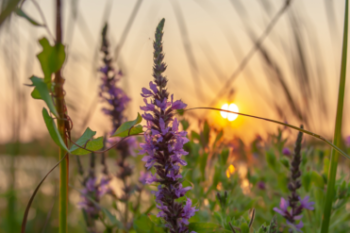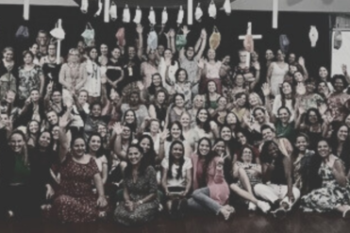Prioritizing What We Value
Earlier this year, just as spring was beginning, our good friend John came down from Philadelphia for a visit. I was in the midst of a sabbatical from teaching – a time granted to theological educators to pursue new lines of research and writing that bring fresh perspective and learning back into the classroom. As summer approached, I was feeling the inevitable sense that I had not “gotten enough done.” We were talking in the kitchen and putting together a cheese board in honor of Saint Patrick’s Day when he asked me how the sabbatical was going. John is a scientist, birder, and educator with deep spiritual sensitivity. I began to describe the ins and outs of finishing up a few projects and others still needing attention. He may have sensed my own ambivalence about “getting enough done.”
No, he indicated. He was not asking about what I had “gotten done.” He reframed the question: “Had I prioritized what I valued?” And this way of thinking about time, commitments, presence, and attention was more interesting and easier to answer. I had, in fact, prioritized many things I valued: reading the spiritually wise, spending discerning time in nature and with friends, and imagining new ways of teaching about God and faith amidst the social challenges of our time.
Prioritizing what we value is not about ranking tasks, relationships, or time.
I sometimes hear “priorities” described as a hierarchy of authority: God, family, work, others. Priorities in this view are a list with items to check off from most important to least. Relationships become tasks. And time becomes something to calculate against conflicting demands. Recognizing the unhealthy torture of this calculus is the gift of reflective moments in our busy lives. Prioritizing what we value is not about ranking tasks, relationships, or time.
This summer I witnessed a community prioritizing what they valued in a pub in western Ireland. My spouse and I were traveling with two good friends who knew Ireland well and love its landscapes and culture. One of our first stops was the town of Doolin, where we had come to hike the Cliffs of Moher. Doolin also has a magisterial reputation as one of the oldest and still flourishing centers of traditional Irish music. As an outsider, I imagined the town would have a commercialized and tourist-oriented vibe like Nashville or Gatlinburg.
But less than five hundred people live on the few short intersecting streets of Doolin. There are three or four local pubs. And inside, everyday people casually gather in the evenings to linger, tell stories, and catch up. Nestled around a corner table, local musicians play the fiddle, tin whistle, accordion, bagpipes, banjo, guitar, and mandolin.
Yet in this landscape of change, the small community of Doolin nurtures hope through neighborly love and fellowship. They prioritize what they value by slowing down long enough to sing, share, and laugh.
Some musicians are young and others old. When an older woman steps forward to sing a ballad, everyone hushes the crowd, and the mood grows reverent. When a younger girl no more than four plays her newly learned whistle tune, the applause erupts. Other musicians are among the best in the world. On our second night in Doolin, renowned piper Blackie O’Connell cast a spell of wonder on the uilleann bagpipes. Yet there was no celebrity culture around his appearance or performance. In fact, there was no stage, ticket office, or complicated sound system.
All of the musicians, and the gathered community of neighbors and guests, were simply prioritizing what they value: connecting with each other and keeping their stories of pain and resilience alive across the centuries. Without anyone drawing up spreadsheets or “to do” lists, these musical nights were about multi-generational connection, listening, learning, and spontaneity. Everyone present could feel life and energy in the room.
As I think about the start of a new academic year, prioritizing what I value is key to beginning again with intention. The rugged coast of western Ireland has been beaten and battered by centuries of extreme weather, famine, war, and migration. Yet in this landscape of change, the small community of Doolin nurtures hope through neighborly love and fellowship. They prioritize what they value by slowing down long enough to sing, share, and laugh.
As I think about the start of a new academic year, prioritizing what I value is key to beginning again with intention.
As the summer winds down and a new academic year begins, I am choosing not to make lists of things to accomplish. Instead, I start the day with a good stretch and full glass of water. I close my eyes and remember those I love and those in need. And I open my eyes and invite God into the day.
I’m asking myself each morning if I am prioritizing what I most value: students, perspective, wisdom, and the Holy Spirit. As a theological educator this looks something like gathering with musicians and attentive guests to share what hope and resilience look like in a world of constant change and disruption. There is no needed stage, ticket, or expert talent. All that is needed is neighborly love and fellowship. Noticing where our treasure is, and how our heart and hope will follow (Matthew 6:21).
Dr. Miriam Perkins is the Professor of Theology and Society at Emmanuel Christian Seminary at Milligan. View Emmanuel’s Academic Programs page here.





